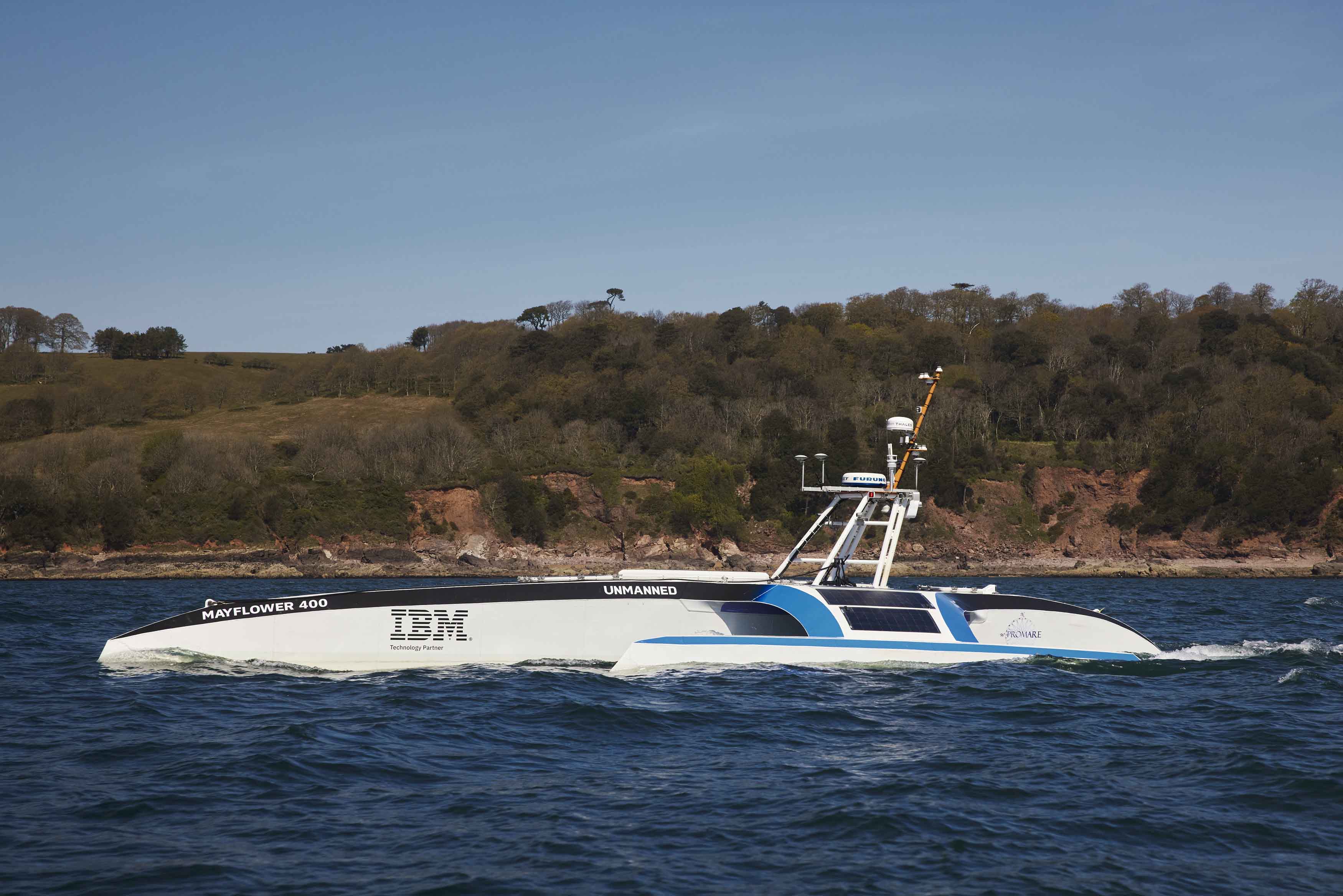Chelsea Technologies Announces Research Partnership With Ground Breaking Transatlantic Research Project Mayflower
Chelsea have been selected as a research partner to an international effort led by marine research organization Promare

Chelsea will deploy a ground-breaking next generation multi-parameter algae sensor aboard the unmanned Mayflower Autonomous Ship when it embarks on its historic transatlantic voyage from Plymouth, UK, to Plymouth, Massachusetts in May.
The 15-meter vessel is designed to provide scientists with a flexible and cost-effective platform for collecting critical data about the health of the ocean and further the technological development of marine autonomous systems. The AI navigation suite has been trained to recognise other marine traffic and obstructions using over 1 million real-life training images.
Joining a global consortium of partners including the lead technology and science partner IBM, Chelsea will be collecting multi-parameter fluorescence measurements from the vessel throughout the hazardous ocean crossing.
The 6-channel sensor, which is not currently available for general release, will continuously measure 4 algal pigments under test conditions, with 2 environmental fluorescence corrections integrated within a single, compact sensor housing. The data collected is expected to provide new insights into primary productivity and ocean health in the North Atlantic.
The probe will be mounted on board the autonomous vessel and will operate via a specially designed flow chamber. The sensor will be operated continuously throughout the voyage, providing valuable data on primary productivity and phytoplankton health.
Metrics gathered on the voyage will help the Chelsea development team evaluate the sonde for general manufacture. Once the technology is assessed, the sensor has the potential to provide significant new capabilities to many service applications. In addition to algae, the multi-parameter sonde may be available in hydrocarbon and tryptophan-like fluorescence variants.
Why measure multiple algal pigments?
Different algal species have different induction spectra depending on their specific pigment composition.
The Chelsea payload will measure 4 different wavelengths, designed to excite different algal pigments. This allows many different types of photosynthesizing organisms to be detected, including red algae, diatoms and cyanobacteria. Studying the relative concentrations of each pigment can provide information on the amount and type of species present within the algal community.
About Chelsea Technologies
Chelsea has pioneered the design, development and manufacture of environmental sensing solutions for over five decades, forming a rich heritage which today underpins our range of class-leading instruments and systems.
We apply optical sensing techniques, active and imaging fluorometry and subsea acoustic systems to a range of applications and market sectors. Building upon long traditions of quality, innovation and scientific rigour, Chelsea’s transformative technology is helping the global shipping industry achieve better environmental outcomes, bringing new perspectives on ocean exploration, enabling healthier fisheries, optimising agricultural practices to increase crop yields, and even advancing cutting-edge techniques in life sciences and infection control.
CONTACT
Matt Kenney
Chelsea Technologies Group Ltd
sales@chelsea.co.uk
www.chelsea.co.uk
+44 20 8481 9000
Tuesday 4 May 2021 / file under Agriculture | Marine | Technology



